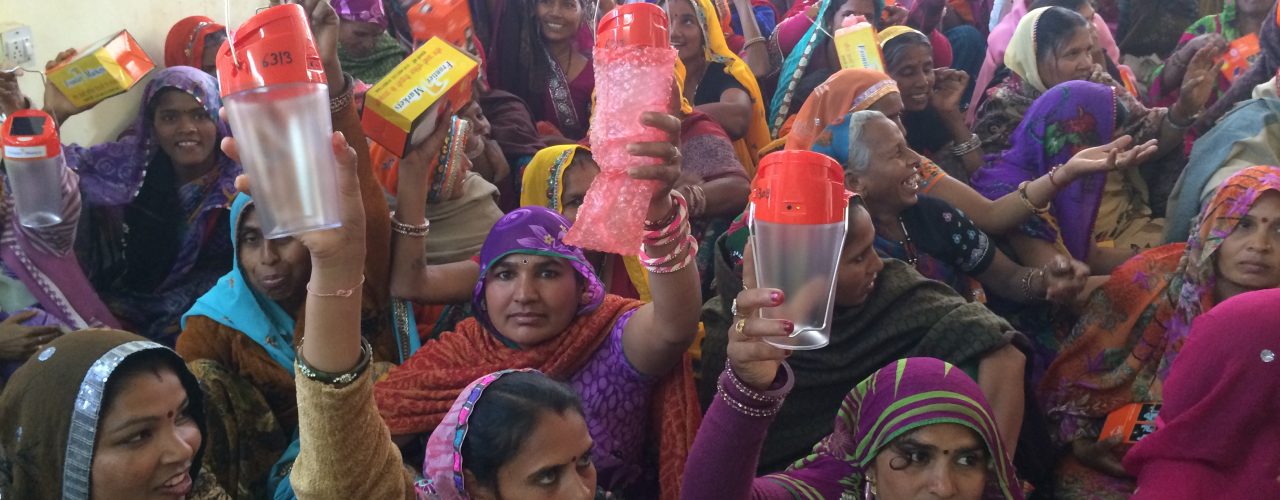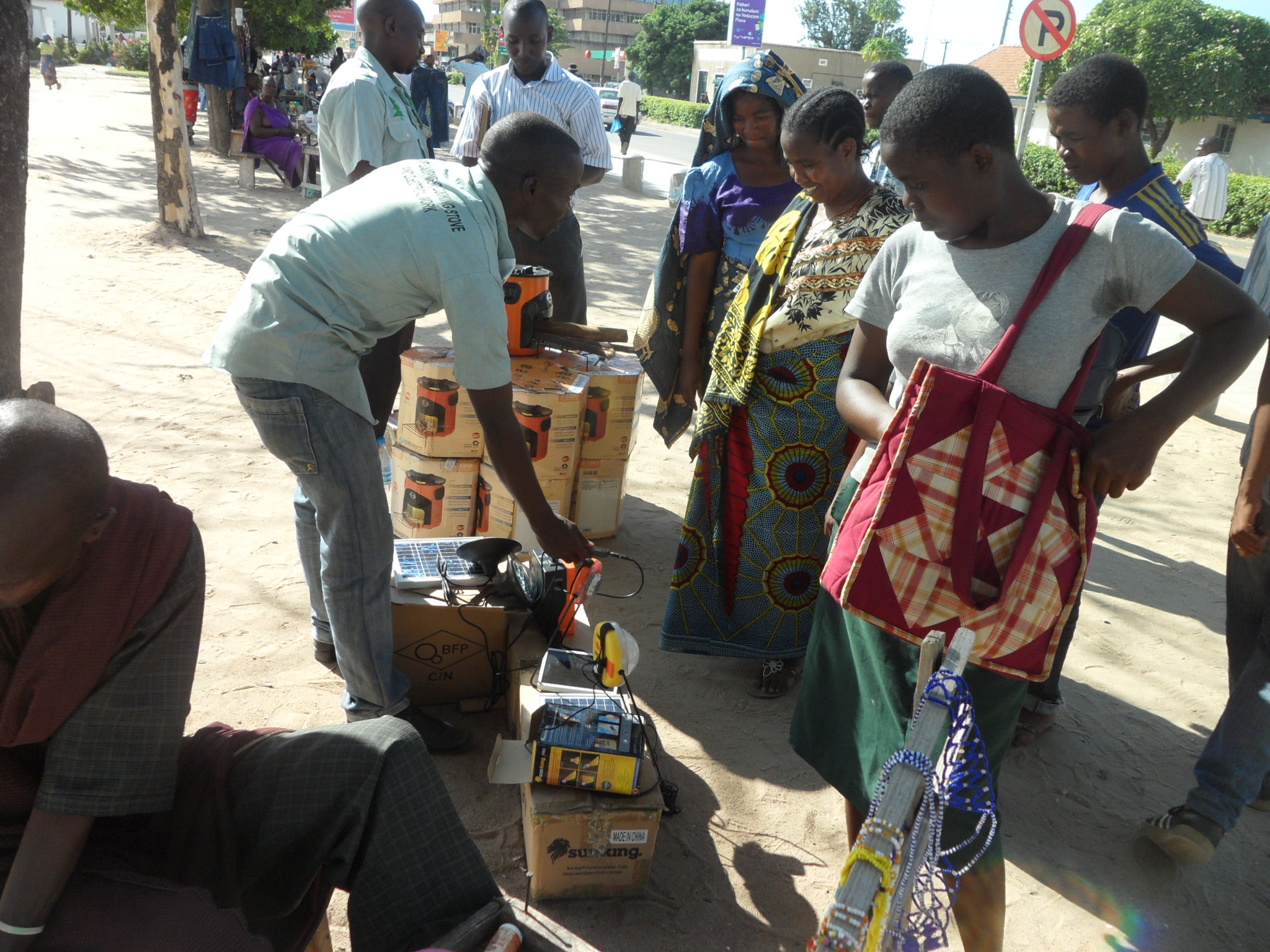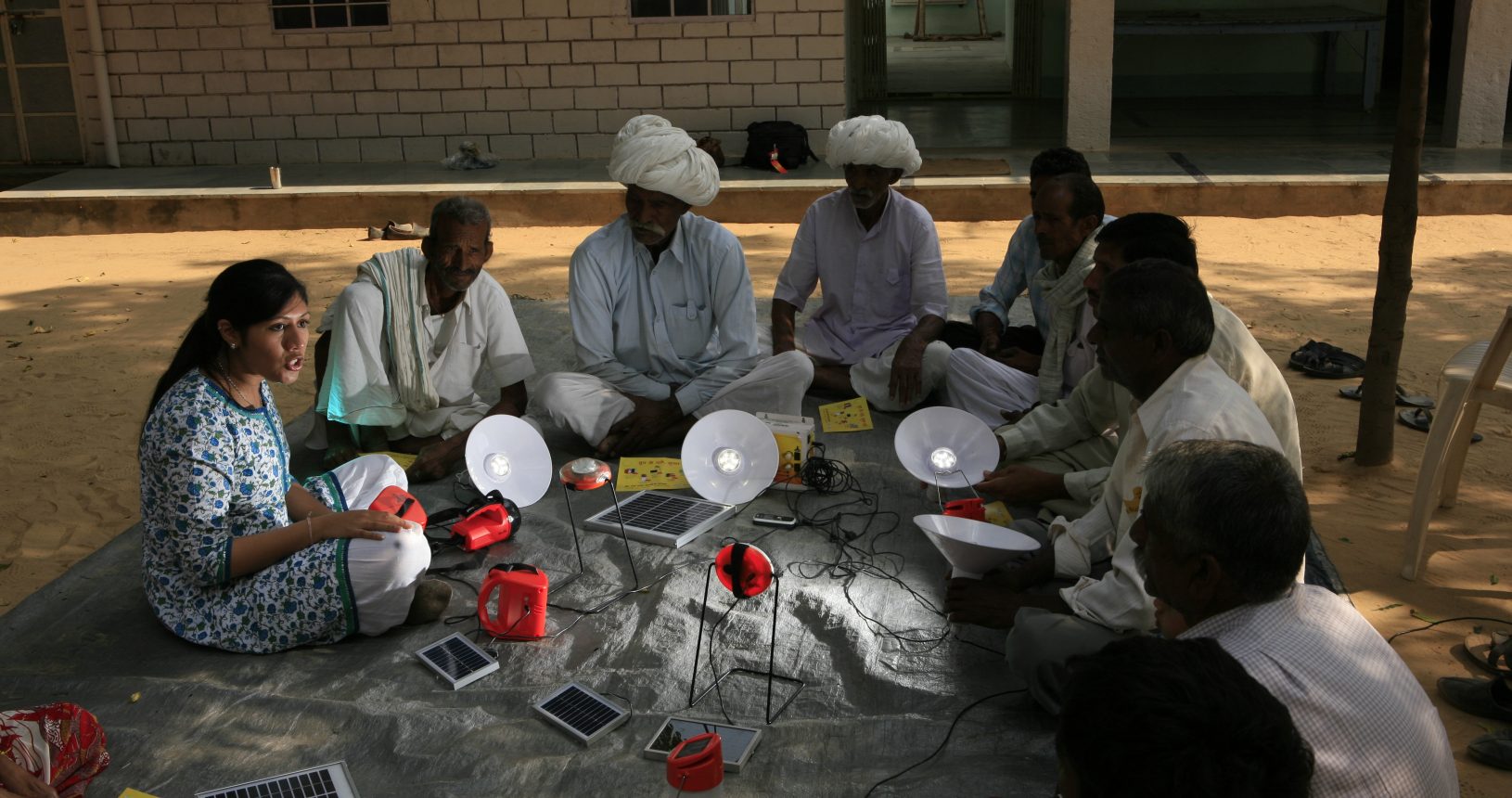Imagine an Earth Hour with Clean Energy for All

On March 28th thousands of cities turned off their lights during Earth Hour to draw attention to the urgent need to act on climate change. Even though the devastating impacts of climate change are becoming ever more visible, global carbon emissions – one of the main contributor to climate change – continue to rise at an alarming rate. One key challenge we are facing is to reduce carbon emissions, and at the same time provide energy for a growing population. According to the International Energy Agency 18% of the world’s population still does not have access to electricity and more than double, 38%, lacks access to clean cooking facilities.
Providing energy for all from conventional energy sources would significantly increase global carbon emissions further aggravating climate change. However, without access to electricity communities also often rely on “dirty” energy sources such as coal, traditional biomass and kerosene lamps. Those energy sources are considered “dirty” from two perspectives: One, they contribute to environmental degradation through deforestation and carbon emissions; secondly, they increase air pollution, which in turn has negative health impacts causing 4 million deaths annually.
Improving the efficiency of current energy sources, e.g. advanced biomass cook stoves, is one solution; another is the reliance on renewable energy sources, including solar power. With 2015 being the “International Year of Light”, we explore innovative approaches that some 2014 SEED Award Winners have taken to bring solar energy – clean tech’s ‘next big frontier’ – to sub-Saharan Africa and Asia; the two regions that account for more than 95% of the people that lack access to electricity and clean cooking facilities.
Off-grid solar energy: a case for social and environmental entrepreneurship
Globally, 84% of the people without access to electricity live in rural areas. Where governments and large corporations have so far failed to provide reliable electricity, local entrepreneurs are stepping in to fill the gaps: solar energy is a powerful off-grid alternative. Sun light is abundant making the derived solar energy easily accessible and commonly a lot more affordable for remote communities and climate friendly.
The enterprises presented below all share a common goal; using global advances in technology to make solar energy part of the local solution to energy poverty and carbon emissions: as a source of light during night for school children, a clean alternative to traditional cook stoves, a means to charge mobile phones and more.
Even though the start-ups differ significantly in their location, their distribution models and the diversity of their product lines, they all work hard to improve customer awareness, increase trust in new technologies, tackle last-mile distribution and to ensure affordability with pay-as-you-go payment options that match customers’ income streams.
Powering development with solar energy: how do some SEED Winners do it?
L’s Solution (Tanzania): Building a marketing and distribution network

‘Going where the customers are at the right time’ is the mantra of L’s Solution. The enterprise uses the power of tailored marketing to sell cook stoves, solar lamps and chargers to rural villagers at road shows and village trade fairs in Tanzania. L’s Solution also installs larger-scale devices such as solar water pumps and solar PV panels. L’s Solution’s strength is its distribution and marketing network of local sales agents and promotional marketers.
By building a strong network of partners, such as with a local women organisation, a business and, an international non-profit and by training local entrepreneurs to demonstrate products to the general public, the localised networks allow the enterprise to strengthen customer relations and reach some of the 85% of the Tanzanian population living in rural areas.
Frontier Markets (India): Providing needs assessments and after-sales services

In India Frontier Markets provides solar energy lanterns, torches, and home-lighting systems to rural low-income families. Besides offering affordable products the enterprise builds its business model on after-sales services, regular product use and needs assessments and customer education, which in turn ensures long-lasting impacts of the products and generates customer trust. In addition, Frontier Markets employs a hub-and-spoke distribution model, whereby local community members, mainly women, educate their communities and in partnership with the Centre for Microfinance and the NGO GVSS are able to sell the solar products.
Energy Unlimited (Malawi): Increasing awareness, access and affordability through partners
Energy Unlimited rests its approach on the three As: Awareness, Access and Affordability.

An inventive partnership with the local radio station Capital Radio gives the enterprise a forum to raise awareness through programmes on energy poverty, its impacts on Malawian society and its connection to environmental and economic challenges. Partnerships with research and development organisations further help to educate the public. In addition Energy Unlimited advises institutional partners on ways to integrate renewable energy technologies into income generation, farming and other projects.
Energy Unlimited increases access by distributing solar products for households such as solar lighting, chargers, cook stoves and agri-tools through a distribution network. Women and men are trained to become part of the distribution network and run their own clean energy enterprise, in turn increasing the access to energy for others.
Affordability is achieved through partnerships with existing suppliers of clean energy technologies and testing of different finance mechanisms and payment models.
Working towards a World Earth Hour where we can keep our lights on!
Wouldn’t it be nice if one day we can ALL keep our lights on for World Earth Hour? This can only be made possible by tackling two major issues: 1) access to energy for a growing population and 2) mainstreaming the usage of clean and renewable energy. Experience shows that governments cannot take on the responsibility on their own. By the same token, entrepreneurship can play a significant role in the development of new technology but also providing access.
Clearly, there is no ‘one-size-fits-all’ solution to solar energy distribution or adoption, but interestingly eco-entrepreneurship provides ways is which distribution models and product lines can be tailored to the specific needs of their customer groups to succeed in garnering the support of rural communities.
As energy is key to sustainable development, SEED looks to support enterprises working to increase access to energy. Does your enterprise also help to solve social and environmental problems? Apply until 31 March for the SEED Awards 2015!
Co-author: Carolin Ehrensperger
Article was previously published at SEED.